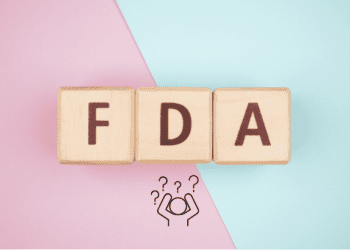Retatrutide isn’t FDA-approved. It’s still in clinical trials. But that hasn’t stopped people from trying to get their hands on it. Touted as the next evolution in obesity medication, this experimental drug is already generating a cult-like following online—and raising questions about access, safety, and the future of weight loss pharmacology.
The New Frontier in GLP-1 Drugs
Retatrutide is a triple agonist—it simultaneously targets GLP-1, GIP, and glucagon receptors. Early trial results show dramatic weight loss effects, even exceeding those of current headline-grabbing drugs like semaglutide (Ozempic, Wegovy) and tirzepatide (Mounjaro, Zepbound).
Participants in a 2023 study lost up to 24% of their body weight over 48 weeks. That’s more than what’s been observed in FDA-approved weight loss drugs. For many, retatrutide represents the “next-gen” obesity drug—supercharged and potentially more effective.
But there’s just one problem: It’s not on the market yet.
So How Are People Getting It?
While pharmaceutical giant Eli Lilly is still conducting clinical trials, some patients are accessing retatrutide via compounding pharmacies and research peptide websites. These gray-market channels are offering what they claim are synthetic versions of the drug for “research purposes only.” Others are selling blends labeled as “retatrutide analogs” or “triple agonist peptides,” often with little regulatory oversight.
These versions are not approved, not standardized, and certainly not risk-free. Yet the demand is so high that forums like Reddit, Telegram groups, and private Facebook pages are full of user anecdotes and vendor referrals. In some cases, people are injecting these unregulated compounds with no medical supervision—just TikTok tutorials and crowd-sourced advice.
The Rise of DIY Pharmacology
This isn’t the first time we’ve seen consumers sidestep regulation in pursuit of cutting-edge medications. Semaglutide and tirzepatide were similarly accessed through compounding routes during shortages and cost surges. But retatrutide raises the stakes. It’s not FDA-approved in any form, and its long-term safety profile is still largely unknown.
The appeal lies in the promise: more weight loss, faster results, a newer pathway to metabolic health. But that promise comes with risk—especially when drugs are sourced from compounding pharmacies that may vary in quality, or worse, from overseas peptide labs with no accountability.
What This Signals About Public Demand
The popularity of retatrutide before approval underscores just how desperate many Americans are for effective weight loss solutions—and how willing they are to act outside the system to get them.
It also exposes a regulatory and medical lag: The public appetite for pharmacological solutions to obesity is evolving faster than the formal approval process. With obesity affecting over 40% of U.S. adults, medications are increasingly seen as the best hope for long-term management. When people feel the system is too slow—or too expensive—they find alternatives, legal or not.
Final Thoughts
Retatrutide is still in the pipeline, and Eli Lilly has not announced when or if it will seek fast-track approval. Until then, its underground popularity is a symptom of a much larger shift in how Americans approach chronic disease management: with urgency, ingenuity, and a willingness to cut corners.
Whether this trend leads to wider access or wider consequences remains to be seen. But one thing is clear: retatrutide isn’t just a drug—it’s a movement in the making.















